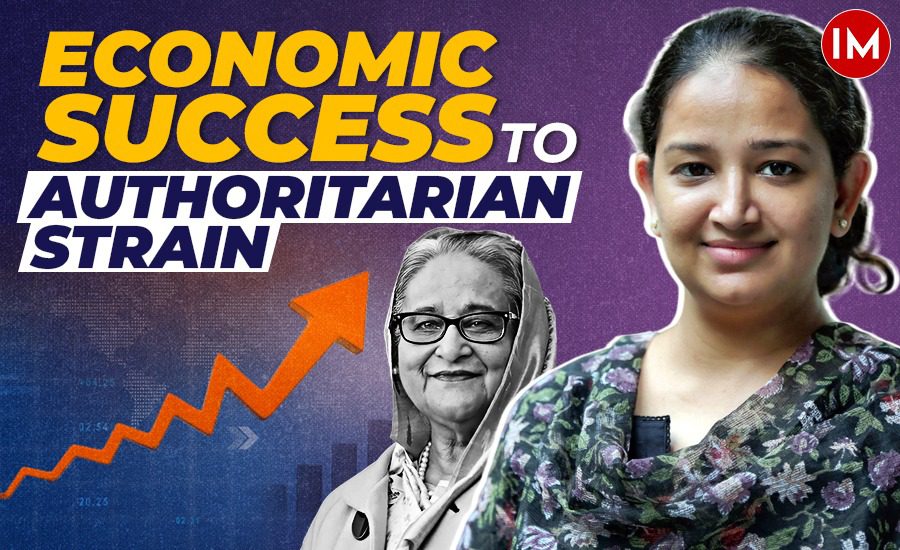All is not well, it seems, for Sheikh Hasina Wazed, the Prime Minister of Bangladesh. Her fourth innings as as Prime Minister starting earlier this year have been rocky. The golden era she once enjoyed has come under strain as time, for her, has lost its essence.
For 15 years Sheikh Hasina ruled Bangladesh with an iron grip. This benefitted the country economically, with GDP growing annually at 7%. So gripping was her rule that Bangladesh become a celebrated tale of rising from the ashes.
She was the phoenix that had determination in her eyes, and grit in her pace. She lifted 170 million out of poverty, fought Islamic militancy, and kept good relations with her neighbours and foes. Draped always in a colourful sari accompanied by a beatific smile, Sheikh Hasina became the world’s longest-serving and most successful female head of government.
But as the phoenix soared, her desire for power became gluttonous. The iron grip turned rigid. She grew increasingly authoritarian and resented dissent, unleashing fear and division in society. Those who kowtowed to her were rewarded, and awarded and those who attacked her were met with crackdowns and imprisonment. Her ruthless use of power began to choke and mottle Bangladesh’s democracy. Even the election this year was a one-sided affair, with the entire opposition locked up in jail. Unopposed, Sheikh Hasina redeemed power.
But how long can people be suppressed? Bangladesh has started to rebel, and a huge backlash has started against Prime Minister Sheikh Hasina and her government.
It all began on July 1st, when a huge student-led protest took over the streets, demanding to abolish the quota system for government jobs. On July 5, the movement escalated when the high court gave a verdict to keep the quota system in place.
But all hell broke loose on July 14th. Hasina made a woeful comment, stating, “Why do they [the protesters] have so much resentment towards the freedom fighters? If the grandchildren of the freedom fighters don’t get quota benefits, should the grandchildren of Razakars get the benefit?”
“Razakar,” is known to be a pejorative term in Bangladesh, referring to Bangladeshis who collaborated with Pakistan during the war of 1971.
Hurt and angry, the university students in the aftermath of this comment made it a battle against Hasina. They clashed with the police and the ruling party’s thuggish student wing. They also stormed the state broadcaster and violence began to roll into nearly half of the country’s 64 districts.
In response, the government sent in armed troops and, from July 20th, imposed a nationwide curfew enforced by a shoot-to-kill order. It also shut down internet services, with a partial restoration coming on July 23rd. According to the government, 150 people have been killed since then. But the numbers will probably be higher. The casualties are higher. And the anger between both—the people and Prime Minister Sheikh Hasina—is vindictive.
For Bangladesh to witness this turmoil under Sheikh Hasina’s rule, of course, is unprecedented. But she called it, and she made it. Sheikh Hasina had been soaring so high in power that she failed to see the realities. Her misuse of state institutions and presiding over rampant corruption among the Awami League and its business cronies have left Bangladesh’s bereft. She has always been vengeful about dissent but now calling them ‘Razakar’ has left the people seething.
If Sheikh Hasina doesn’t fly down soon and smell the mood of rage and resentment against her, times will become calamitous for her and for Bangladesh, which has undeniably slipped into chaos. Chaos that will become bloodier in time. Sheikh Hasina created a new Bangladesh from the ashes, and today she is burning it down.
(Author is Delhi-based Senior Editor of Naya India, a Hindi daily. She writes on politics, international relations and current affairs)



































